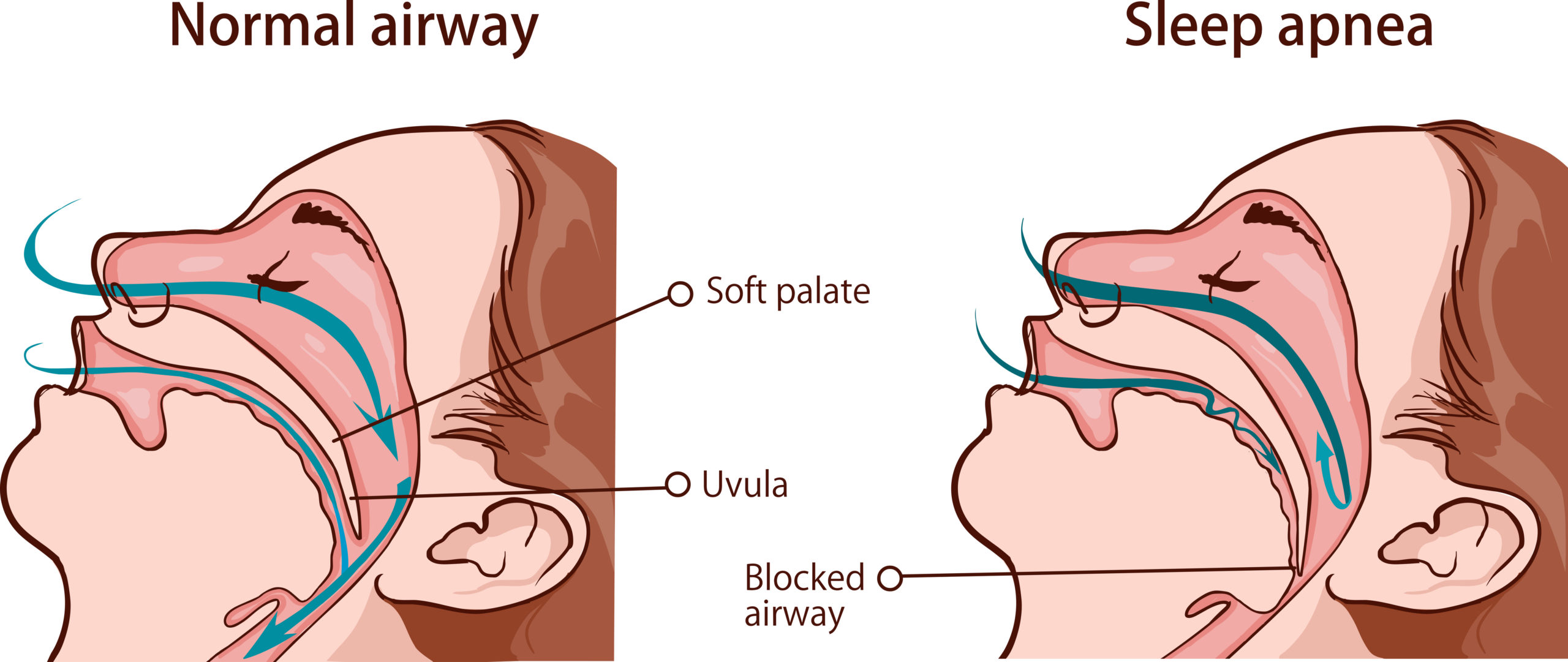Can Weight Loss Help Sleep Apnea
"Shedding Pounds, Easing Snores: How Weight Loss Can Improve Sleep Apnea"
Weight loss has long been touted as a solution for a myriad of health problems, from cardiovascular disease to diabetes. One condition that may be improved by shedding pounds is sleep apnea, a sleep disorder that affects millions of people worldwide. In this blog post, we will explore the link between weight loss and sleep apnea, how losing weight can help improve this condition, and provide tips on how to lose weight effectively.
What is Sleep Apnea?
Sleep apnea is a condition where a person's breathing is repeatedly interrupted during sleep. This happens when the muscles in the throat relax and block the airway, causing a pause in breathing that can last from a few seconds to over a minute. This pause in breathing can result in snoring, gasping, or choking sounds, and can wake the person up from sleep, even if they are unaware of it.
There are three types of sleep apnea: obstructive sleep apnea (OSA), central sleep apnea, and complex sleep apnea syndrome. OSA is the most common type, accounting for 84% of cases. It occurs when the muscles in the back of the throat fail to keep the airway open, despite efforts to breathe. Central sleep apnea is caused by a lack of communication between the brain and the muscles that control breathing, while complex sleep apnea syndrome is a combination of both OSA and central sleep apnea.
How is Sleep Apnea Diagnosed?
To diagnose sleep apnea, a sleep study, also known as a polysomnography, is usually conducted. This involves spending a night in a sleep center or using a home monitoring device that measures your breathing, heart rate, oxygen levels, and brain waves. The data collected during the study is analyzed to determine if you have sleep apnea and the severity of the condition.
The severity of sleep apnea is measured by the Apnea-Hypopnea Index (AHI), which calculates the number of breathing pauses per hour of sleep. AHI scores range from mild (5-15), moderate (15-30), and severe (30+).
How is Sleep Apnea Treated?
There are several treatment options available for sleep apnea, depending on the severity of the condition. Mild cases of sleep apnea may be treated with lifestyle changes, such as losing weight, quitting smoking, avoiding alcohol, and sleeping on your side.
For moderate to severe cases of sleep apnea, the most common treatment is continuous positive airway pressure (CPAP) therapy. This involves wearing a mask that delivers pressurized air to keep the airway open during sleep. Other treatments may include oral appliances that reposition the jaw or surgery to remove excess tissue from the throat.
Image The Dental Spa
Sleep apnea is a serious sleep disorder that affects millions of people worldwide. It occurs when the muscles in the throat relax and block the airway, causing breathing to stop and start repeatedly during the night. This can lead to a number of health problems, including high blood pressure, heart disease, and stroke.
One of the most effective ways to reduce the symptoms of sleep apnea is through weight loss. When you carry excess weight, it can put pressure on your airway, making it more likely to collapse during sleep. Losing weight can help to reduce this pressure and improve the quality of your sleep.
But how exactly does weight loss help sleep apnea? Here are some of the ways:
1. Reduces inflammation: Obesity is associated with chronic inflammation, which can contribute to the development of sleep apnea. Losing weight can help to reduce inflammation and improve the function of the airway.
2. Improves breathing: When you lose weight, you also reduce the amount of fat that is stored in the neck area. This can help to open up the airway and improve breathing during sleep.
3. Lowers blood pressure: High blood pressure is a common risk factor for sleep apnea. Losing weight can help to reduce blood pressure, making it easier for the body to breathe during sleep.
4. Boosts energy: When you get better quality sleep, you will wake up feeling more rested and energized. This can help to improve your overall health and well-being.
So, if you are struggling with sleep apnea and carrying excess weight, it's time to take action. Here are some tips to help you get started:
1. Make healthy food choices: Focus on eating a balanced diet that includes plenty of fruits, vegetables, lean protein, and whole grains. Avoid processed and sugary foods.
2. Get moving: Regular exercise can help you lose weight and improve your overall health. Aim for at least 30 minutes of moderate-intensity exercise most days of the week.
3. Practice good sleep hygiene: Establish a regular sleep schedule, avoid caffeine and alcohol before bedtime, and create a relaxing sleep environment.
4. Seek support: Join a support group, work with a registered dietitian, or talk to your healthcare provider about developing a weight loss plan that's right for you.
By taking steps to lose weight and improve your overall health, you can reduce the symptoms of sleep apnea and improve the quality of your sleep. Remember, small changes can lead to big improvements in your health and well-being.


